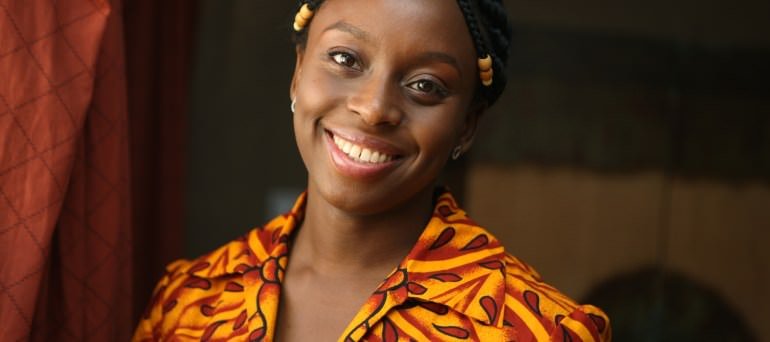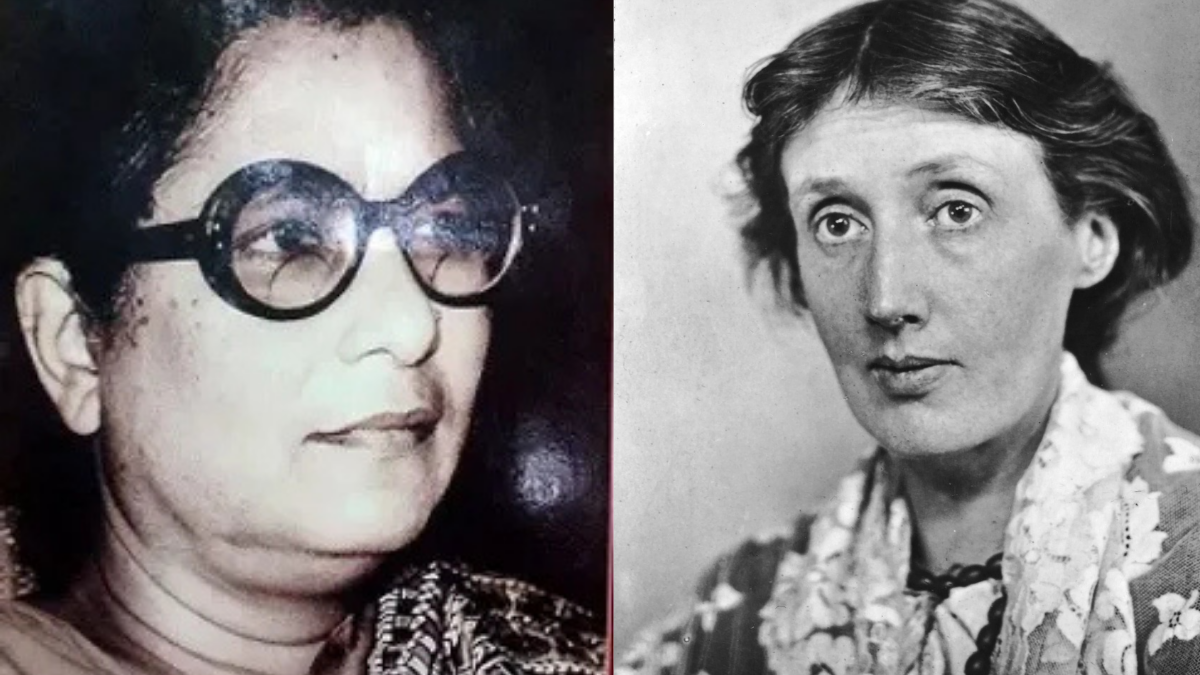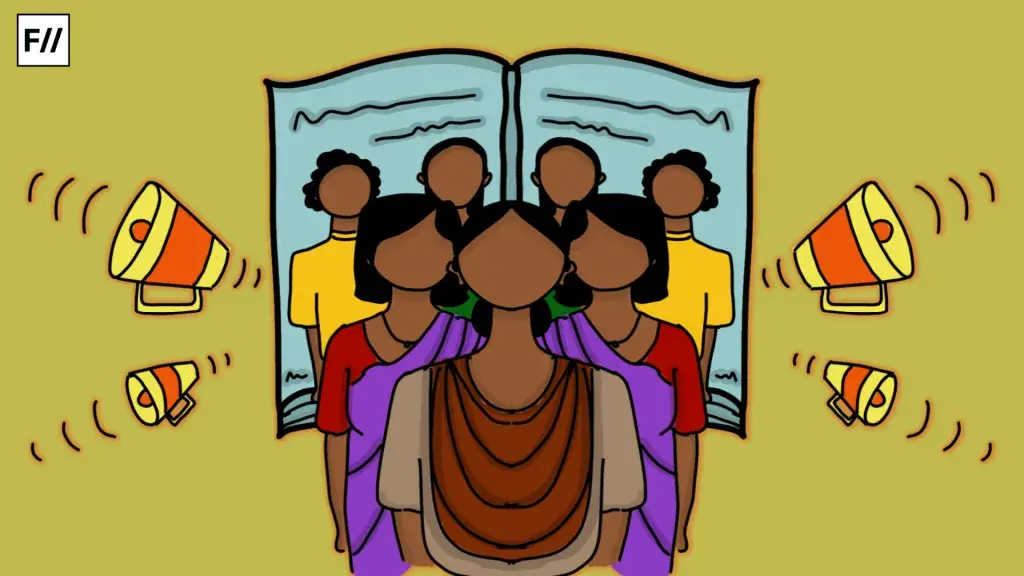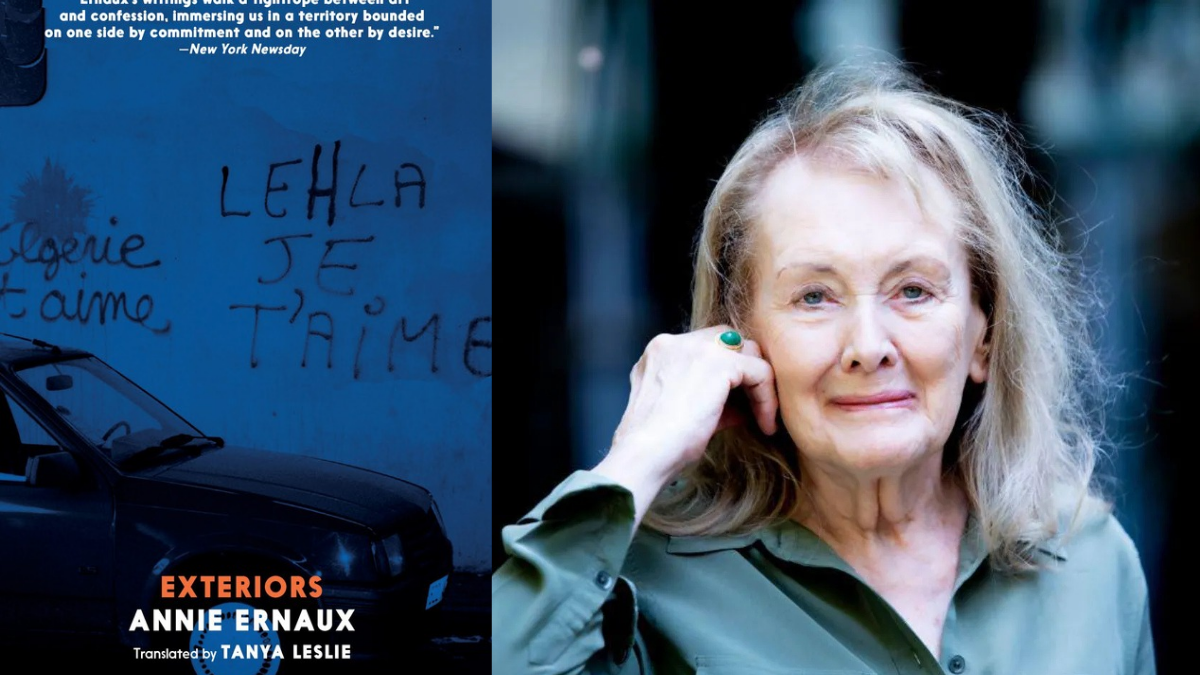Don’t we all write about love? When men do it, it’s a political comment. When women do it, it’s just a love story.
The woman who said the above quote spent her adolescence reading a lot of Mills and Boon. She was also a feminist from an early age. Growing up, she realized there were problems that all those books had in common. One of them was that the destiny of the relationship was always in the hands of a man. She grew up to be the Chimamanda Ngozi Adichie we know today, a Nigerian feminist and the author of Americanah. She wrote two other novels and gave an amazing TED talk about why we should all be feminists. The dilemma of searching for one true love is the only similarity between Americanah and a Mills and Boon novel. Ngozi describes this coming of age story as her attempt at writing anti-Mills and Boon fiction.
Book: Americanah
Author: Chimamanda Ngozi Adichie
Publisher: Fourth Estate; February 27, 2014
Genre: Fiction
The romance genre in literature is one with a stigma attached to it. For the most part, romance novels are marketed to women. When marketed to everyone, most straight men do not want to associate with it. From Nicholas Sparks’s statement about his work never verging into melodrama and therefore not belonging to the genre of romance fiction, to Fifty Shades of Grey, or rather fifty shades of torture, popular romance fiction can hardly be called feminist. It brings to mind a similar commercial success – the Twilight saga, from which Fifty Shades of Grey came into existence as fan fiction, whose author gender-swapped Twilight only to prove how central sexism is to the plot and the character dynamics.
Nicholas Sparks statements about what he writes as not romance but love stories only confirm that romance is seen as a problem, especially if you are a man who admits to reading it, or in the case of Sparks, writing it. In the face of such hypocrisy, the most radical thing a writer can do is embrace the romance genre, which Adichie does unapologetically with her coming of age novel Americanah.
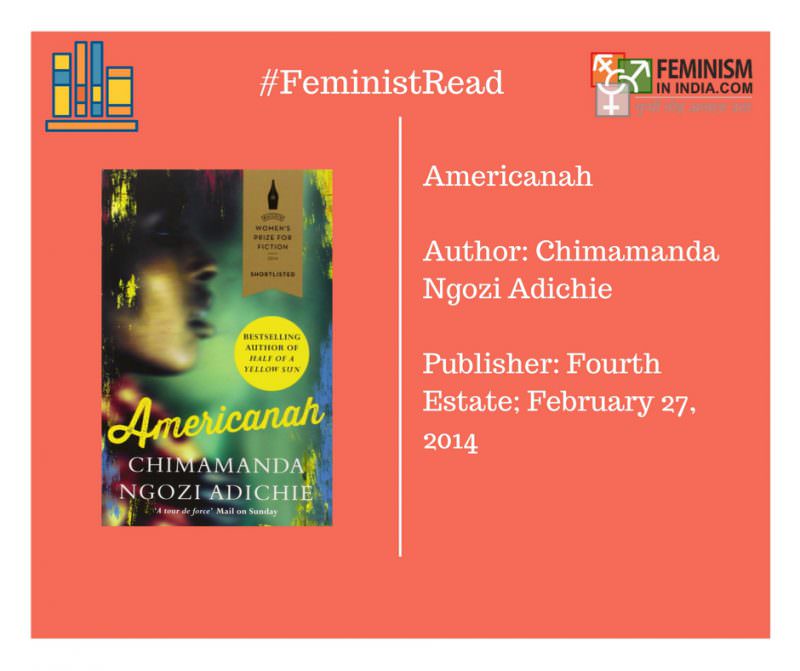 The most striking attributes of Ngozi’s writing are the clarity of prose, the lucidity of sentences. Chimamanda, like Ifemelu, is direct about her opinions, painting a three-dimensional picture in the reader’s mind with definitive strokes, while balancing seriousness with humor and irony. Her sensibility is something you may find close to your own. Another important attribute to her writing is strong characterization. When Zadie Smith asked her why all her characters were strong and confident, Chimamanda promptly replied-
The most striking attributes of Ngozi’s writing are the clarity of prose, the lucidity of sentences. Chimamanda, like Ifemelu, is direct about her opinions, painting a three-dimensional picture in the reader’s mind with definitive strokes, while balancing seriousness with humor and irony. Her sensibility is something you may find close to your own. Another important attribute to her writing is strong characterization. When Zadie Smith asked her why all her characters were strong and confident, Chimamanda promptly replied-
The idea of a woman being strong, and simply being strong – not to prove anything, or not to be unusual, is normal to me.
Americanah is driven by character rather than plot. Ifemelu is a Nigerian who emigrates to the United States to complete her college education. She goes on a journey to discover her individuality in a new culture, struggles to establish herself financially, and strives to make sense of her new-found racial identity through a blog.
When the reader is introduced to her in the first few pages, Ifemelu is not yet a grown woman, but she is headstrong, and confident in her skin. She is flawed, but not in the romantically messy, sexy, tousled way that Hollywood movies glorify, but in a real human way. She is independent and self-assured. She relies on her own assurances as opposed to narratives where women rely on others validation.
Ngozi describes the male romantic leads with details that have a quality of a grainy, sometimes exaggerated reminiscence, as memories of old lovers can be – from carefree Curt to earnest Blaine. Curt is anxious to please, holds Ifemelu like an egg, and blinds her with his brightness. Blaine, is sinewy with goodness, and believes in unbending, unambiguous honesty.
There are no minor characters, in that each character has their own life, from well-intentioned Kimberly at Ifemelu’s babysitting job to her cousin Dike. Her father is an intellectual and an academic. Her mother is alarmingly superstitious. Of all her complex relationships with each character, her relationship with her cousin Dike is the most touching. What was interesting and almost comical to me was how her Aunt Uju forms Dike’s psychology without acknowledging her role in it and blames Western culture for it.
This novel forced me to see something I was oblivious to. The problem of race is prevalent even today. It is something that doesn’t exist in your own country but becomes your defining characteristic after immigration. With today’s world crisis of migration this book also highlights the existence of xenophobia, with Obinze’s harrowing struggle to survive as an undocumented immigrant in London. Reinvention of identity in a new culture, the question of what makes a place home, racism and politics in America and class in Nigeria are themes explored in this book, sometimes with bitterness, and sometimes with humor. A significant part of this book deals with self-acceptance and the daily question of how to wear our hair – straight or natural. White supremacy ends up dictating this for us, among other things.
Obinze is unlike the conventional romanticized bad boy, who is unemotional and in need of fixing. Neither is he the typical cocky know-it-all type who takes care of the heroine in every regard. He is drawn to self-assured women, whose boldness can be intimidating to others. He is short and grounded. Playing a central role in shaping his personality is his mother, a self-contained professor who is never scared to speak up. Like Ifemelu, he too has a strong sense of self from a very young age. Shortly after meeting Ifemelu, he tells her
You looked like the kind of person who will do something because you want to, and not because everyone else is doing it.
More than anything else in this novel, I was excited to see how Ifemelu and Obinze’s story would unravel. It is the romance in this book that I most looked forward to, and savored with cups of hot chai on rainy days. Their romance seems almost too good to be true – too easy, because it lacks the typical conflict and relationship violence that is the paradigm of traditional romance.
“With him, she was at ease; her skin felt as though it was her right size.”
With Obinze, Ifemelu is not forced to bend. She is perfect exactly the way she is. This is a book that interweaves many complex themes. But according to Ngozi, this is essentially a love story – one which the reader may find to have a quality of epicness. It is the story of Ifemelu and Obinze; how they lose each other – get swept away on a journey to find themselves – only to return to their roots to find each other again. Americanah is a story about our roots, and about home.
Americanah is being adapted to a movie starring Lupita Nyong and David Oyelowo.
Featured Image Credit: Nigerian writer Chimamanda Adichie gestures in Lagos, Nigeria, Tuesday, September 16, 2008 (AP Photo/George Osodi).
About the author(s)
Nalini sharma is a fresher in the ever-expanding school of feminism. In her spare time, she can be found writing cheesy poetry and watching funny YouTube videos.
